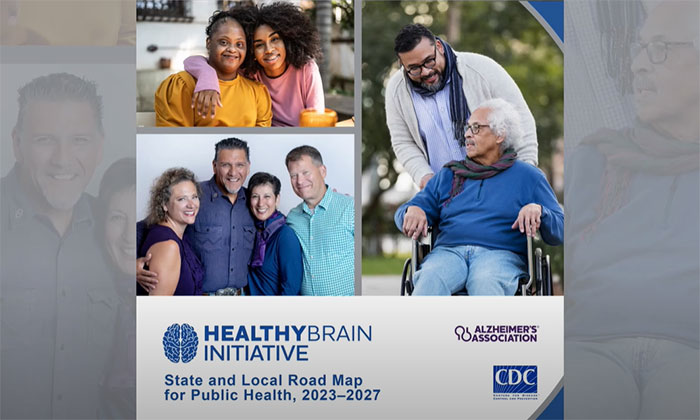Last month, the Alzheimer’s Association and the Centers for Disease Control and Prevention (CDC) released the latest version of the Healthy Brain Initiative (HBI) Road Map, which provides public health officials across the nation with a set of strategies to promote brain health and improve the quality of life for people living with dementia as well as their caregivers.
Dr. Patricia Heyn, Director of Marymount University’s Center for Optimal Aging, provided her expertise on this national collaborative effort by sharing her knowledge in the topic area of risk reduction of cognitive decline.
“The vision for our work is to translate the science and fully integrate cognitive health and caregiving into public health practice,” Dr. Heyn said. “Healthy Brain Initiative partners work together to implement public health strategies that promote brain health, address dementia and help support caregivers. The Healthy Brain Initiative Road Map guides this effort.”
Since last year, Dr. Heyn has collaborated with 18 other experts in the workgroup specializing in risk reduction of cognitive decline to bring this initiative to the public. Overall, more than 100 experts working in health departments, nonprofits, academic institutions, health systems and the private sector provided feedback and guidance during the development of the 2023-2027 HBI Road Map.
For over 15 years, the Alzheimer’s Association and the CDC have jointly developed the evolving HBI Road Map Series. In this new edition, it includes 24 actions to promote brain health, improve diagnoses and maximize care, with a larger focus on partnerships, evaluation and health equity. These actions are grouped into four areas:
- Strengthening partnerships and policies
- Measuring, evaluating and utilizing data
- Building a diverse and skilled workforce
- Engaging and educating the public
“This edition [of the HBI Road Map] builds on the progress being made in addressing brain health, with a greater emphasis on partnerships and health equity,” said Kristen Clifford, chief program officer with the Alzheimer’s Association. “With the HBI Road Map as their guidebook, public health professionals will continue to lead with urgency and help people impacted by Alzheimer’s and other dementia in their communities.”
Each year, Alzheimer’s and other dementia increasingly impact millions of Americans, their families and their communities. Today, an estimated 6.7 million people are living with Alzheimer’s and more than 11 million are providing unpaid care for someone with the disease, according to the Alzheimer’s Association’s 2023 Alzheimer’s Disease Facts and Figures report. These numbers are expected to rise as the nation ages and, more than ever, public health has a critical role to play in changing the course of dementia.
The Alzheimer’s disease continuum spans decades, providing opportunities for public health to change outcomes in communities across the nation. Just as with other chronic and degenerative conditions, public health efforts can work across the lifespan to reduce risk, expand early detection and diagnosis, improve safety and quality of care for people living with cognitive impairment, advance health equity and attend to caregivers’ health and well-being.





